Signing of the Santiago Declaration: Red STEM Latinoamérica sets pioneering goals for 2024
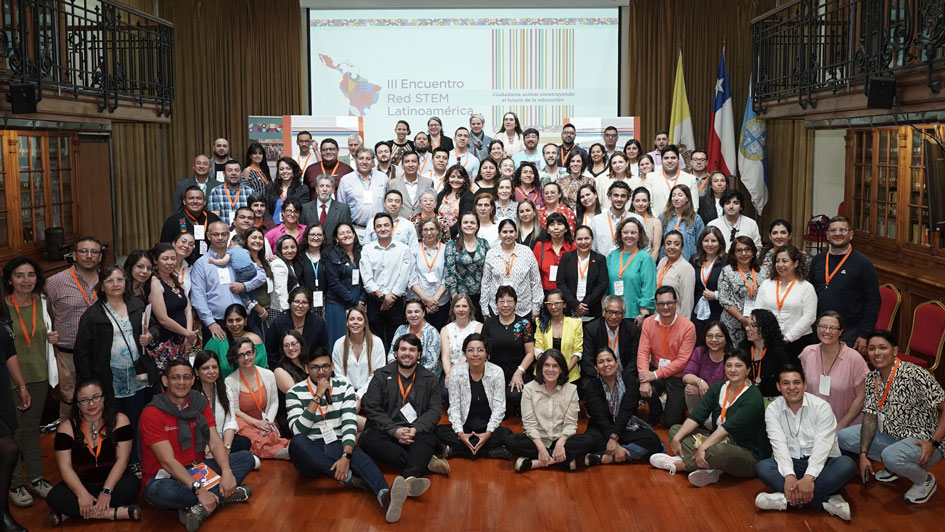
Participants at the meeting pledge to forge collaborations to promote innovative STEM education in Latin America
© Siemens Stiftung
From 21 to 23 November 2023, the third meeting of the Latin American education network Red STEM Latinoamérica took place at the Pontificia Universidad Católica (UC) in Santiago de Chile. The three-day meeting was organized by Siemens Stiftung’s team in Chile. Pioneering goals for 2024 were formulated under the motto “Active citizenship: Shaping the future of education”.
The opening ceremony, chaired by Ulrike Wahl, Head of the Siemens Stiftung Regional Office Latin America, marked the start of three days of intensive discussions and insights into the world of STEM education; the plenary sessions were moderated by Paola Pino (Siemens Stiftung).
On the first day, the event was open to the public. This was followed by closed working discussions between the network hubs. Common goals and agendas for STEM territories as well as regional thematic tables were promoted. In parallel, the second meeting of the teacher community and the second congress of the Network of Deans of Faculties of Education of Latin America took place. Both sessions brought together key members of the STEM network and brought together over 180 educational stakeholders in Latin America.
The event opened with speeches by Alejandra Arratia, Undersecretary of State for Education in Chile, Ignacio Sánchez, Rector of the UC, Ramón Iriarte, Education Program Specialist at UNESCO and Irmgard Fellner, Ambassador of Germany to Chile.
Dr. Nina Smidt, Managing Director and Spokesperson of the Board of Directors, Siemens Stiftung said: Our work in Latin America lies at the heart of strategic topic areas: Be it our project on climate change education with regional Latin America for Climate Change Education network partners or co-creation, local adaption, and dissemination of Open Education Resources across the region. Together, we have found fresh and innovative approaches to address the global challenges”.
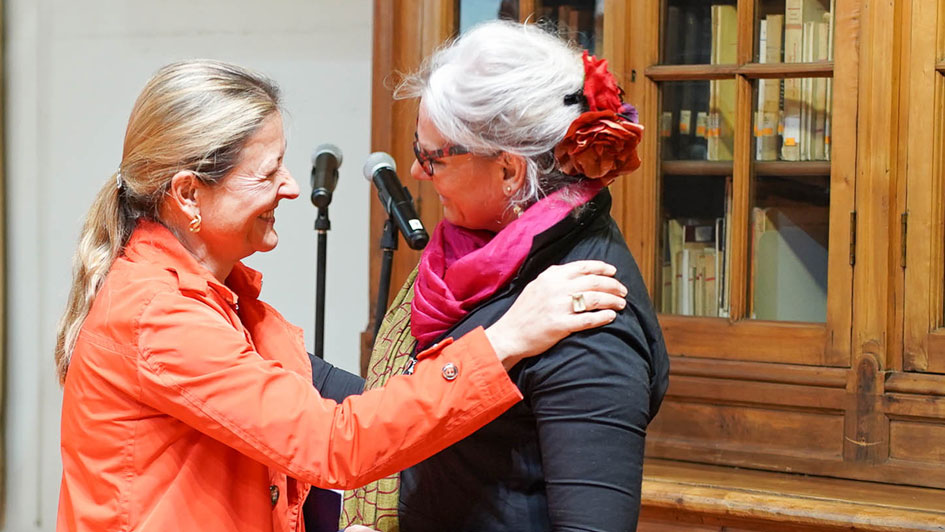
The centerpiece of the opening ceremony was the presentation on “Disruptions and agendas for educational transformation”, by eminent sociologist and educator Renato Opertti from UNESCO’s International Bureau of Education, who called for a reshaping of civilization, a reform of the education system and the strengthening of democracy and inclusion. “The focus is shifting; we need to prepare to interact with AI. We are in a technological race and need to equip young people with the necessary intellectual tools to tackle this issue. There is also the question of how AI can help promote student freedom and autonomy and personalize education”, he explained.
The following days offered inspiring “STEMTalks”, a project fair, panels, and workshops as well as closed panel discussions. The focus was on strategic projects on topics such as Open Educational Resources (OER) where Anna Vater (Siemens Stiftung) and Marisol Ramírez (UNESCO Chair Open Educational Movement in Latin America) launched the baseline study that analyzes the competencies and knowledge on OER and climate change education where Badin Borde (Siemens Stiftung) highlighted the need for forming regional partnerships to implement contextualized climate change education. In working groups further topics relating to the Red STEM area and education policy were explored in greater depth.
On the third day, the participants shared the results of the various working groups to further advance and consolidate the cooperative work within the network. Marie-Therese Seifert (Siemens Siftung) focused on cooperation between the different worktables of the network. In a joint session project prototypes on cross-worktable topics were created that will be pursued in cooperation.
The participants actively exchanged knowledge and strengths, shared experiences, and best practices to improve the quality of education through the STEM approach. The grand finale of the event was the signing of the Santiago Declaration, marking an important milestone for the network along with setting the roadmap for the next year.
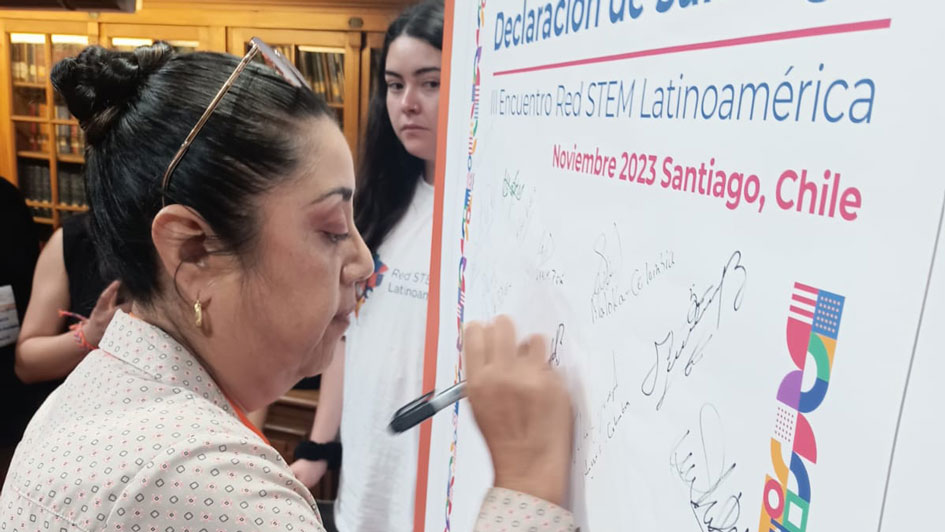
At the closing ceremony, Ulrike Wahl announced the most important outcome of the successful third meeting of the Latin American Education Network:
- The first meeting of universities in the STEM field for 2024 was announced
- STEM network joined the UNESCO Chair: Science Education for Citizenship through its partner Universidad Autónoma de Chile
- The University of Uniminuto Colombia and Mexican state of Quertaro joined the STEM Territories
- A permanent working group for the organization of STEM+ Olympics in the region was confirmed
- Formation of a group for museums and science centers was announced
The inspiring third meeting of Red STEM Latinoamérica, not only brought together many education stakeholders from Latin America, but also facilitated the development of a substantial action plan by forging meaningful connections and collaborations. The conference culminated with the network members reiterating their commitment to successfully shape the future of education in Latin America and inspire other education networks worldwide.
Press contact:
You might also be interested in
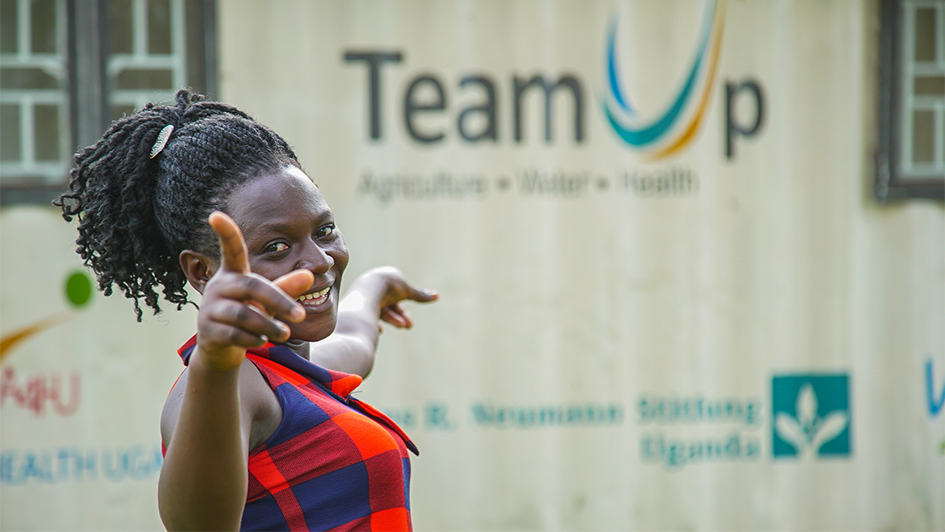
World Youth Skills Day 2024: African youth at the crossroads of educational opportunities and systemic change
- African youth are at a critical juncture, facing both educational opportunities and the need for systemic transformation. Siemens Stiftung is addressing this by implementing holistic projects that combine STEM education, social entrepreneurship, and youth empowerment to foster 21st-century skills and enable active participation in shaping Africa's sustainable future.
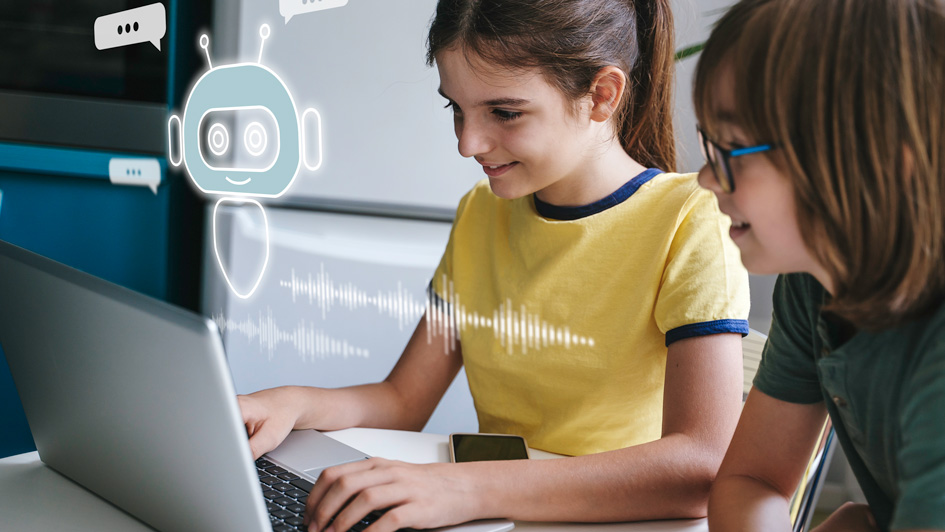
“Mind the Gap!” – How to achieve educational equity in the digital world
- Digital media and AI offer great potential for teaching and learning, but do not automatically change educational opportunities. To enable equitable participation, a shift in mindset is required. How this can be achieved was the topic at the German KonfBD24 conference.


